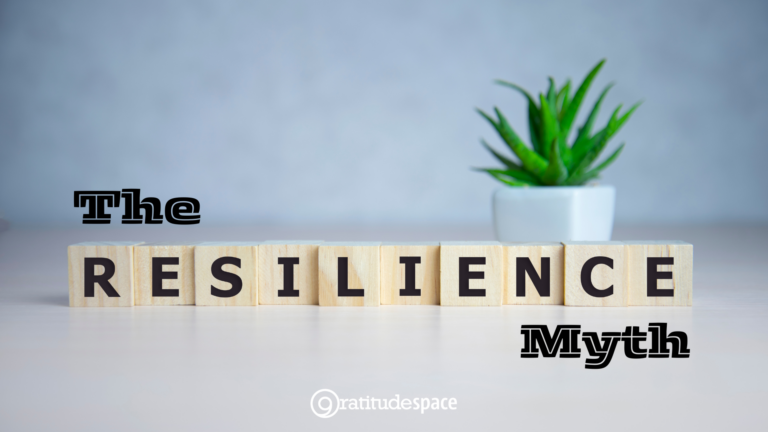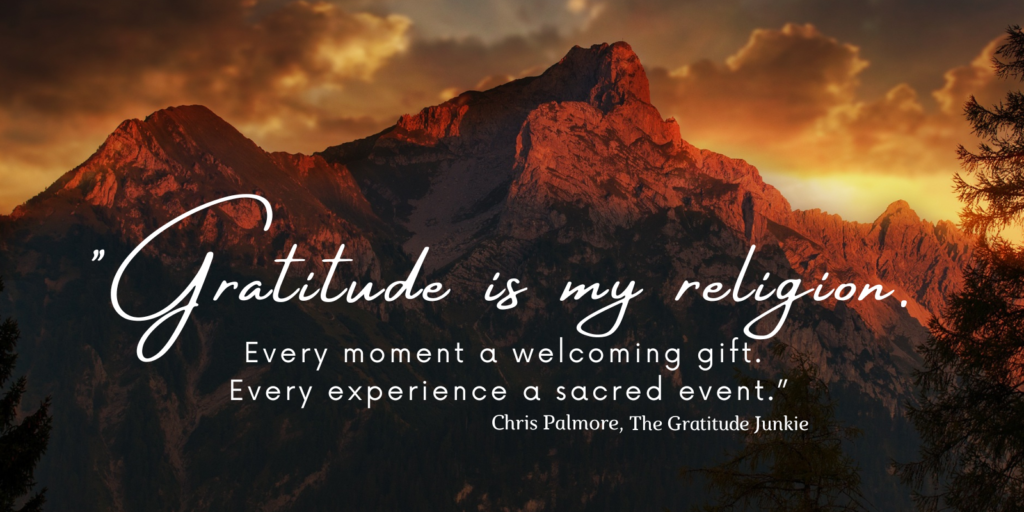

The Resilience Myth: Why Dismissing Struggles Doesn't Lead to Strength
By Chris Palmore
Have you ever felt guilty for feeling sad when things could be worse? Or pushed yourself to feel grateful when your heart wasn’t in it? You’re not alone. While gratitude is a powerful tool, it can sometimes be distorted by guilt or pressure—leading to what some call “toxic gratitude.”
Gratitude, at its best, can be life-changing. However, when misapplied, it can become a barrier to authentic emotional expression. This blog explores how gratitude can become toxic, the role of internal choices versus external influences, and how we can reclaim it as a force for empowerment and growth.
What Is “Toxic Gratitude”?
Toxic gratitude isn’t harmful in itself—it’s gratitude misunderstood. It happens when we use gratitude to dismiss emotions instead of honor them.
Here are some common examples:
- Suppressing Emotions: “I shouldn’t be upset—I should be grateful.” This mindset can prevent you from processing real feelings like grief, anger, or sadness.
- Avoiding Boundaries: “At least they haven’t hurt me worse.” Gratitude sometimes justifies staying in harmful or toxic situations.
- Feeling Shame for Not Being Grateful Enough: “Why can’t I just feel grateful? Other people have it worse.” This thought process can lead to self-judgment and feelings of inadequacy.
Genuine gratitude leaves room for all emotions—it doesn’t silence your pain.
Internal Choices vs. External Influences
One of the key questions about toxic gratitude is: Is it driven by internal choices or external pressures?

External Influences: Shaping the Narrative
External factors such as cultural norms, societal messaging, or advice from others can shape how we view gratitude.
- Phrases like “You should be grateful it wasn’t worse” or “Gratitude fixes everything” can create unrealistic expectations.
- Social media often reinforces highlight reels of positivity, making authentic emotions seem like a failure.
Over time, these external influences can become internalized and affect how we respond to difficult emotions.
Internal Choices: The Power of Interpretation
Despite external messaging, we have the power to assign meaning to our experiences.
- We may choose to suppress difficult emotions out of fear of seeming ungrateful.
- Alternatively, we can choose to hold space for gratitude alongside those emotions.
Analogy: External influences may hand you the lens, but you choose how to see through it.

The Consequences of Misused Gratitude
-
Misapplying gratitude leads to:
- Emotional Suppression: Bottling up feelings that need to be acknowledged.
- Burnout and Resentment: Constantly forcing gratitude without addressing hardships can lead to frustration.
- Self-Shame: Feeling like you’ve failed because you aren’t grateful enough.
Unprocessed emotions can build up, undermining the very peace gratitude is meant to foster.
Reclaiming Authentic Gratitude
Gratitude should empower, not suppress. Here are practical steps to ensure your gratitude practice remains healthy and authentic:
Acknowledge All Emotions
Allow yourself to feel what you need to feel. Gratitude doesn’t mean ignoring your struggles.
- Reflection: “What emotions am I avoiding in the name of gratitude?”
Check the Source
Ask yourself whether your gratitude is genuine or rooted in external pressure.
- Question: “Am I practicing gratitude because I want to, or because I feel I should?”

Use Gratitude to Empower, Not Avoid
Gratitude should be a bridge to growth, not a mask for pain.
- Reminder: “Gratitude can coexist with pain and help me find strength—not bypass my healing. The goal is balance, not avoidance.”
Conclusion:
Gratitude, at its core, is about fostering connection, not perfection. When chosen freely, it can be a source of peace and resilience.
Gratitude is most powerful when it’s chosen, not forced. What small, genuine gratitude can you hold today—not to deny your struggles, but to walk with them?
Closing Thought:
Genuine gratitude doesn’t avoid hardship—it invites grace to share in the experience.

Chris Palmore, a.k.a. The Gratitude Junkie, is a best-selling author of The Mechanics of Gratitude, The Little Book of Grief, Grace, and Gratitude, and The Stoic’s Guide to Joy: 30 Days to Love Your Life. As a gratitude conductor, coach, and keynote speaker, he has created the anthologies Dear 2020: Letters to a Year That Changed Everything, and Dear Gratitude: An Anthology, published the journal Gratitude Journey, founded the nonprofit GratitudeSpace Inc., and is a hosts GratitudeSpace Radio.


